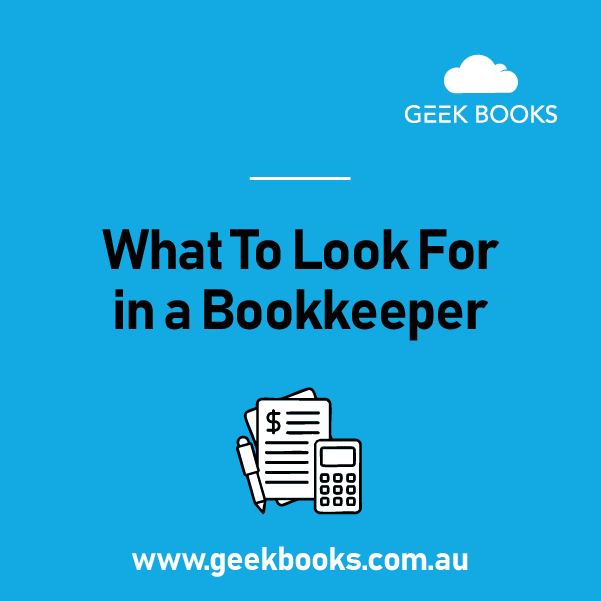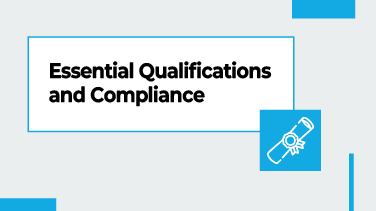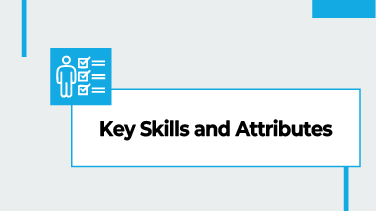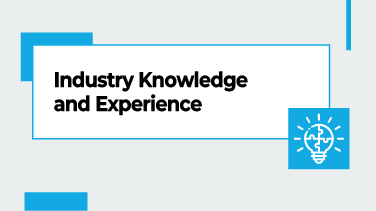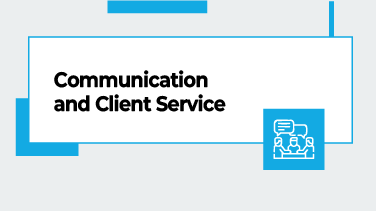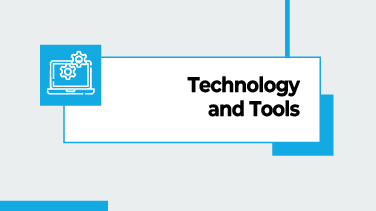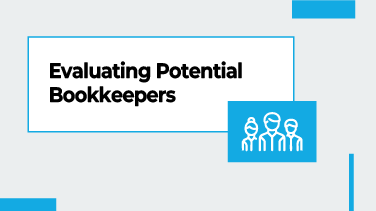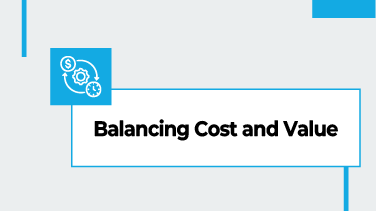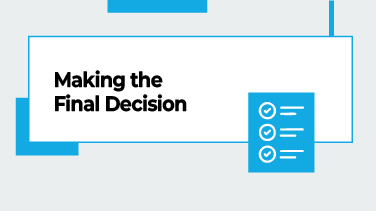Running a business in Australia is no small feat; clients expect quick results, payroll has to land on time, and the ATO doesn’t cut corners on compliance.
At the centre of it all is your bookkeeper, the one keeping your financial story straight.
But here’s the catch: not all bookkeepers bring the same value.
Some stick to basic data entry, while others step up as real financial partners; spotting issues early, helping you plan for tax, and giving you clarity around your financial health.
Get it wrong, and you could be staring down inaccurate reports, compliance headaches, or fines that eat into profits.
That’s why knowing what to look for in a bookkeeper matters.
The right fit gives you confidence, keeps your business stable, and frees you up to focus on growth.
And when you’re ready for support that goes beyond the numbers, GeekBooks is here to help.
Essential Qualifications and Compliance
When hiring a bookkeeper, start by checking their compliance credentials. In Australia, only a registered BAS agent with a valid BAS agent number can legally lodge a BAS on your behalf.
If they’re not registered with the Tax Practitioners Board (TPB), that’s a red flag.
Qualifications are just as important. A Cert IV in Bookkeeping or Accounting is often the baseline, but additional training or higher education shows a stronger foundation.
Look for evidence of professional development, ensuring they stay updated on tax laws, bookkeeping tech, and reporting standards.
Industry-specific expertise is also key.
Managing books for construction businesses, for instance, deals with complex subcontractor arrangements, while bookkeeping for the hospitality industry faces unique payroll and cash flow issues. A bookkeeper familiar with your industry will be far more effective.
Bottom line: compliance isn’t optional. Hiring an unregistered or unqualified bookkeeper risks errors, penalties, and ATO compliance issues. Choose wisely!
Key Skills and Attributes
Qualifications matter, but a great bookkeeper has what it takes to keep your business on track.
- Accuracy and attention to detail: Minor mistakes in bookkeeping can snowball into major problems. A qualified bookkeeper catches errors early, keeps every figure accurate, and knows how to prepare BAS, payroll, and financial reports the right way, saving you from penalties and headaches.
- Organisational skills: Deadlines never stop coming. A good bookkeeper keeps your accounts current, manages key dates, and helps you stay ahead of compliance obligations so your business runs smoothly without last-minute stress.
- Technology know-how: Modern bookkeeping runs on tools like Xero, MYOB, and QuickBooks. A skilled bookkeeper doesn’t just use these systems, they also know how to leverage them to make workflows faster, cleaner, and more reliable.
- Commitment to professional development: Tax rules, compliance requirements, and software are always evolving. A bookkeeper who invests in professional development brings you up-to-date knowledge and practical value year after year.
Industry Knowledge and Experience
While every bookkeeper works with numbers, the context around those numbers varies from industry to industry.
That’s why experience is a big factor when evaluating potential bookkeepers.
If you run a retail business, you may need help managing stock levels, handling high transaction volumes, and integrating point-of-sale data into your accounts.
While a tradie often deals with subcontractors, progress payments, and equipment purchases, requiring a different bookkeeping approach tailored to their specific sector.
Ask whether the bookkeeper has managed businesses of a similar size to yours.
Someone who’s only worked with sole traders may not be equipped to manage the complexity of a multi-entity company with multiple balance sheets and payroll demands.
Experience with compliance reporting in your industry is also invaluable.
A bookkeeper who understands the tax laws, reporting obligations, and common challenges in your field will save you time and help you avoid costly mistakes.
Choose someone who already knows the terrain. Industry knowledge means fewer hiccups, better compliance, and smoother workflows.
Communication and Client Service
A great bookkeeper translates complex financial concepts into plain English so you can act on the information, not get lost in jargon.
It’s not just about being clear; it’s also about being proactive.
A reliable bookkeeper will alert you to upcoming deadlines, warn you about changes in legislation, and keep you informed about anything that could affect your business.
Here’s what to look for:
- Do they explain reports and financial data in a way you understand?
- Do they communicate regularly, not just at BAS time?
- Do they feel like a partner in your business, not just a contractor?
If you can answer “yes” to those questions, you’ve found someone who adds value beyond bookkeeping tasks.
Technology and Tools
Modern bookkeeping is powered by technology.
A bookkeeper who still relies on outdated spreadsheets is putting you at a disadvantage.
Today’s professionals use cloud systems like Xero or MYOB to give business owners instant access to their financial records.
Automation also plays a big role. Tasks like bank reconciliation and invoice reminders can be handled automatically, freeing your bookkeeper to focus on analysis rather than admin.
This not only increases efficiency but also reduces the risk of human error.
The best bookkeepers also know how to match systems to your business.
They can recommend the right software, integrate it with your existing processes, and even train your team.
When you’re evaluating bookkeeping services, ask how they use technology to improve accuracy and save time.
Evaluating Potential Bookkeepers
So how do you actually choose? Once you’ve narrowed your list of potential bookkeepers, there are a few ways to assess fit.
- Check registrations: Confirm their BAS agent number and TPB status.
- Ask for references: Speak to past clients about reliability and communication.
- Conduct interviews: Ask about their approach to bookkeeping tasks, problem-solving, and how they handle tight deadlines or unexpected challenges.
- Test their skills: Provide a small task or scenario, such as generating a sample financial report or troubleshooting a mock error to evaluate their practical expertise.
- Review past work: Look at sample financial reports or business activity statements.
- Test communication: Notice how quickly and clearly they respond to questions.
Beyond credentials and skills, assess cultural fit.
The right bookkeeper will not only meet compliance needs but also mesh well with your way of working.
Balancing Cost and Value
Cost is often the first question business owners ask, but it shouldn’t be the deciding factor.
A low hourly rate may seem attractive, but if it comes with sloppy work or compliance risks, it could cost you more in the long run.
An experienced bookkeeper may charge more, but their accuracy, efficiency, and insights can actually save you money.
Think about the ROI: fewer penalties, better decisions, and more time to focus on growing your business.
The goal is to strike a balance; reasonable fees for professional service that contribute to your financial stability.
Making the Final Decision
By now, you know what to look for in a bookkeeper: qualifications, compliance, skills, experience, communication, and technology.
The final step is weighing all those factors against your business’s needs.
Many business owners start with a trial or phased onboarding period.
This gives you a chance to see how the bookkeeper works, how they communicate, and whether they feel like a true partner.
Don’t just think about today’s needs.
Choose someone who can support you as your business grows and your systems become more complex.
Work With GeekBooks for Expert Bookkeeping Support
At GeekBooks, we’ve built our reputation by helping Australian businesses of all sizes take control of their financial management.
Our team of qualified, experienced professionals is registered, proactive, and skilled with the latest technology.
Whether you’re a sole trader juggling it all or leading a team that’s scaling fast, GeekBooks is here to keep your records accurate, your compliance on track, and your focus where it belongs: on growth.
Ready to take the pressure off your books and partner with experts who get it?
Contact GeekBooks today for your free consultation and see how we can support your business at every stage.


